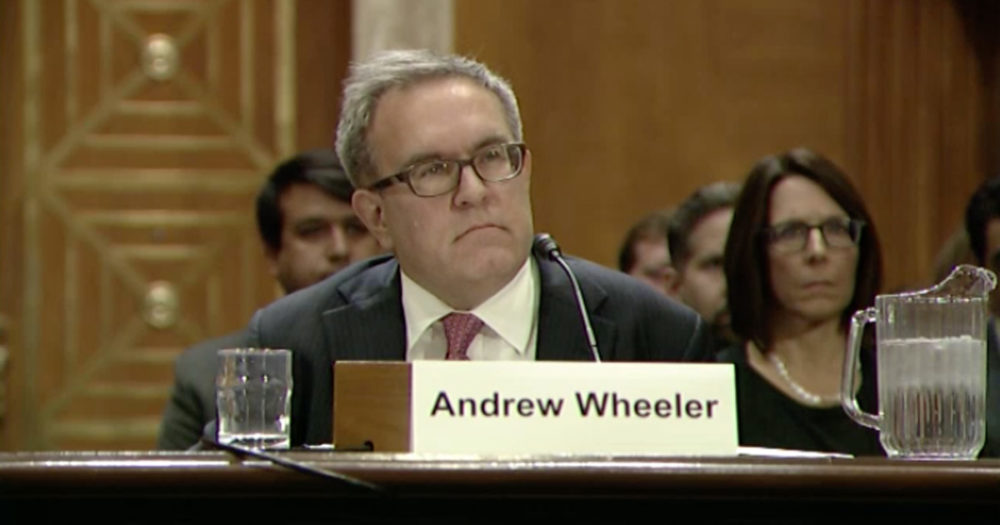Some modest good news: the proposal to restrict the use of science in air pollution, chemical safety, water quality, and countless other decisions at the EPA has been delayed yet again. At a House Science Committee hearing this morning, EPA administrator Andrew Wheeler said that the agency would issue a supplemental proposal in 2020. Politico was first to report this news.
What this means is that the agency is struggling mightily with a fatally flawed proposal that is legally and scientifically indefensible. It’s hard to see how a supplemental proposal would change that fact.
Administrator Wheeler also suggested that the EPA would not finalize the proposed rule until it is vetted by the EPA Science Advisory Board (SAB). It will be essential for the SAB to review the entire rule, not just a narrow slice of it. Unfortunately, the independence of the SAB is likely to be further compromised later this month when some of the remaining independent experts are replaced by additional industry voices. Further, a rule this broad should not move forward without review by the National Academies, which has volunteered to do so.
The administrator has consistently sidelined internal EPA scientists and external science advisors from reviewing the restricted science proposal. Documents obtained via the Freedom of Information Act previously demonstrated that the proposal was developed by political appointees without even consulting top EPA scientists.
The EPA under disgraced ex-Administrator Scott Pruitt originally intended to fast-track the rule, but 600,000 public comments derailed that plan. As Representative Suzanne Bonamici noted in the hearing, nearly every mainstream scientific organization in the country came out strongly against the rule, with not one supporting it.
The proposal comes directly from tobacco industry lobbyists, who previously, and unsuccessfully, tried to get Congress to pass legislation to limit the types of science that EPA can use in regulatory decisions.
Any new proposal will be met with the same level of scrutiny from scientists and public interest organizations. I hope we won’t have to waste as many resources fighting another malevolent effort to limit the EPA’s ability to protect public health.

